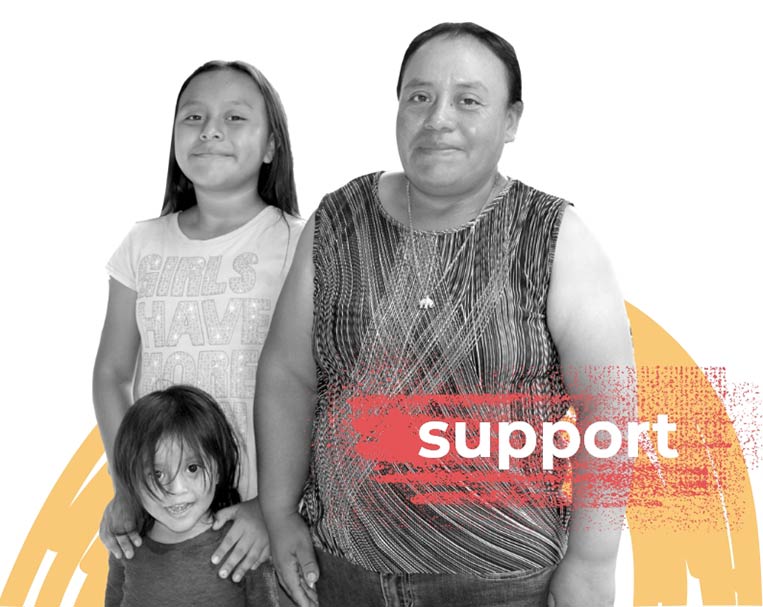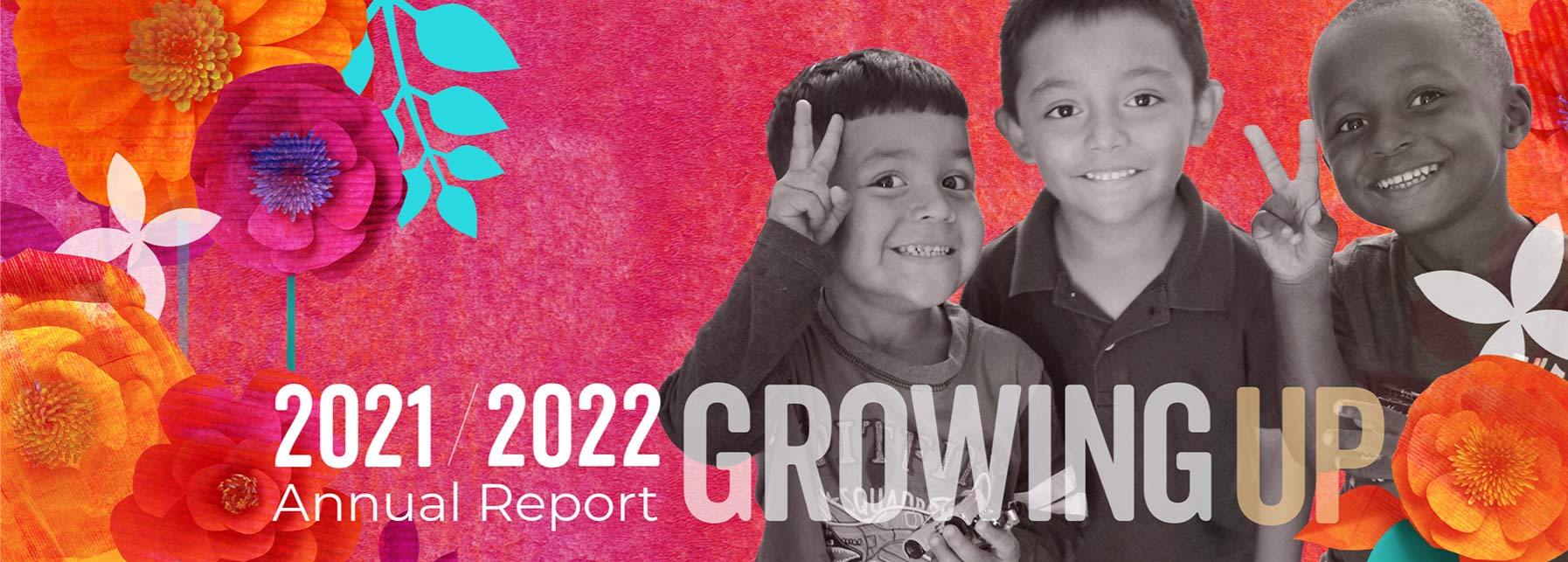
RCMA operates three types of Head Start programs, each customized to the needs of the low-income families served:
Head Start (HS) helps at-risk preschoolers overcome their disadvantages and enter kindergarten ready to succeed.
Migrant & Seasonal Head Start (MSHS) provides excellent early-childhood education to children ages 6 weeks to 5 years of families that migrate for work. Schedules are customized to migrations, and centers typically operate November through May. Center hours are long, from early morning until dusk.
Early Head Start (EHS) targets at-risk infants, toddlers and pregnant teens.
Child-Care Partnerships (CCP) allows Early Head Start programs to partner with local child-care centers to raise their levels of care for infants and toddlers up to Head Start standards.
Head Start requires RCMA and other Head Start providers to publish a statistical report each year.
RCMA Financials
Preparing Children for Kindergarten
On-going Assessment
While the screenings give a snapshot view, COR Advantage Child Assessment gives ongoing information concerning a child’s learning and school readiness achievements in 8 content areas: Approaches to Learning; Social and Emotional Development: Physical Development and Health; Language, Literacy, and Communication; Mathematics, Creative Arts; Science and Technology; and Social Studies. A ninth area, English Language Learning, can also be used when appropriate.
Teachers use this information in report form to share with parents, plan learning activities, and scaffold children’s learning. At center, area, and statewide levels these aggregated reports allow RCMA to plan for teacher training, focus on curriculum areas, and to see progress over time in.
Parent reports are shared during home visits and parent conferences. Teachers provide home activities to engage parents in teaching and learning at home. The parent teacher partnership supports a child to develop age appropriate skills and follow their interests.
Dual Language Learners
Most RCMA children are learning 2 languages. We strongly support the home language and introduce English as a second language for these children. Our school readiness goal is for children build their home language with the support of culturally competent teachers, parents and community and to acquire English proficiency to …”compete in an environment stacked against them in kindergarten.” (Wendell N. Rollason)
Curriculum
RCMA uses the High Scope curriculum to promote the development of the whole child and support lifelong learning. This curriculum emphasizes active exploration of materials and environments. Learning environments and daily routines are arranged and equipped to support a child’s independence and sense of community. We provide interesting and challenging activities and materials for children to actively explore. Children build relationships with their teachers and each other, while developing social and emotional skills and character. Preschoolers predict and ask questions while teacher interact with them intentionally to promote problem solving and higher thinking.
Parent reports are produced which share information and provide activities to help the child develop age appropriate skills and abilities. These reports are shared at home visits and parent conferences. In the classroom, each child is provided with individualized activities to promote development in their area(s) of weakness.
Transition Practices in RCMA
In addition to health, developmental screenings and child assessment, an internally developed series of workshops, outlines RCMA’s procedures for assisting children transitioning from home to school, from classroom to classroom, from Early Head Start to Project or Migrant Head Start, or from outside agencies into RCMA, and from RCMA to other agencies and kindergarten. Transition to kindergarten involves community partnerships with schools and parents. A series of parent workshops designed to inform parents of issues surrounding transition to kindergarten are provided as the foundation for parent support groups. These workshops provide information for parents to make the change from pre-school to school smooth for their children and themselves. Two child portfolios are prepared for each parent. It contains samples of the child’s work, COR and VPK reports that show the child’s learning gains over time during the 4 year old year at RCMA.
Letters of Understanding linking RCMA and local elementary schools are signed and implemented as local efforts to support Transition to Kindergarten. These collaborative agreements provide a framework for joint teacher training, planning discussions, sharing ideas and support other activities for parents, teachers and children.
Serving rural, low-income families, many of whom speak no English at home, RCMA works diligently to educate young children so they can succeed in Florida’s public
RCMA Federal 990 (FY 2022)
RCMA Federal 990 (FY 2021)
RCMA Federal 990 (FY 2020)
RCMA Federal 990 (FY 2019)
RCMA Federal 990 (FY 2018)
RCMA Federal 990 (FY 2017)
RCMA Federal 990 (FY 2016)
Year End Audits
2022 Year End Audit
2021 Year End Audit
2020 Year End Audit
2019 Year End Audit
2018 Year End Audit
2017 Year End Audit
2016 Year End Audit
Agency Budgets and Worksheets
Total Agency Budget 2023
Total Agency Budget 2022
Total Agency Budget 2021
Total Agency Budget 2020
Total Agency Budget 2019
Total Agency Budget 2018
Total Agency Budget 2015
Central Agency Budget 2013 Worksheet
Central Agency Budget 2012-Worksheet
Central Agency Budget 2009-2010 and 2010-2011
In Head Start, the concept of shared governance applies to both grantees and delegate agencies.
Shared decision-making in planning is required in the Head Start Program Performance Standards. Shared decision making is an essential element in all Head Start programs and must be consistently practiced. Because shared decision making is the basis of Program Governance and requires ongoing work and commitment, it is important that all staff and parents, the governing body, and the Policy Council (policy group) understand its importance and function. RCMA has a Governing Board and a Head Start Policy Council and a Migrant Head Start Policy Council. The RCMA Governing Board consists of community members, former parents, officers of the policy councils and business professionals.
Mutual respect and open discussion are hallmarks of the Board meetings. The Board understands its role as having the legal and fiduciary responsibilities for the corporation and do not get involved in day to day operations, unless it is warranted, such as being a part of the employee grievance process. The Board’s oversight assures that RCMA’s philosophy, mission and organizational structure guarantees that the emotional climate of our centers is family friendly and child oriented.
